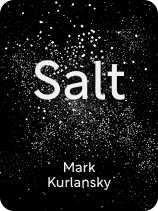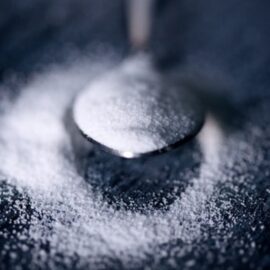

This article is an excerpt from the Shortform book guide to "Salt" by Mark Kurlansky. Shortform has the world's best summaries and analyses of books you should be reading.
Like this article? Sign up for a free trial here.
Is salt a seasoning or a spice? How long have people used salt to garnish their dishes?
For millennia, people have used salt to season their food. Salt by Mark Kurlansky explains that salty sauces and salt crystals have always been used to enhance cuisines.
Here’s why salt is considered a seasoning and not a spice.
Seasoning Food
Is salt a seasoning? According to Kurlansky, yes! Kurlansky claims that people throughout history have used salt to season their dishes, especially to balance or highlight other flavors (such as spiciness, bitterness, and sweetness). For instance, since medieval times, Swedes have believed that salt brings out sugar’s sweetness. They use both salt and sugar to season foods such as fish and licorice.
Let’s explore two main ingredients that have been used throughout history to season food: salty sauce and salt crystals.
Ingredient 1: Salty Sauce
According to Kurlansky, for millennia, people have enhanced dishes using salty sauces. Salt-curing and pickling often produced these sauces as a byproduct. For instance, during ancient times, the Romans and the Vietnamese produced salty sauces (garum and nước mắm, respectively) by straining the liquid left over from pickling fish.
(Shortform note: Given the uncanny similarities between garum and nước mắm, some wonder if ancient Silk Road traders may have brought garum to Asia, leading to Vietnamese nước mắm. However, culinary historians claim that there’s no evidence of this connection. A more likely theory is that nước mắm evolved from Chinese soy sauce.)
Ingredient 2: Salt Crystals
Kurlansky claims that in ancient times, people rarely seasoned their food with table salt (the white crystals found in salt shakers). They didn’t need to: Salt-preserved food and sauces provided enough saltiness. When modern innovations in food preservation replaced salt-based preservation, more people began seasoning dishes with salt crystals. This eventually led to the popularization of uniform-sized, white salt crystals that people stored in tabletop salt shakers.
(Shortform note: It’s common to see salt shakers on tables in Western countries, but other tabletops around the world tend to feature different condiments (some of which are salty). For instance, chile-based awaze paste is a popular condiment in Ethiopia, salsa is a tabletop staple in Mexico, and bottles or bowls of fish sauce sit on tabletops across Thailand and Laos.)
The Chemistry Behind Salt’s Relationship to Other Flavors
Research in food science supports Kurlansky’s claim that salt affects how we perceive bitterness and sweetness. Compounds containing sodium, such as salt, reduce the flavor of bitterness. For instance, salt tones down vegetables’ naturally bitter vitamins and antioxidants. According to research, salt’s ability to suppress bitter flavors in a dish allows you to more easily taste that dish’s sweetness. This may be why Swedes use both salt and sugar to season fish (which can be bitter) and licorice (which contains a bitter compound).
While salt affects our ability to taste bitterness and sweetness, recent research suggests that spicy flavors enhance a dish’s saltiness. If you reduce the amount of salt in a recipe and increase its spiciness, the dish may still taste salty enough for you. Researchers theorize that increasing the spiciness of foods in your diet may reduce your dependence on salt. This could help prevent some of the negative health outcomes associated with a high-salt diet.

———End of Preview———
Like what you just read? Read the rest of the world's best book summary and analysis of Mark Kurlansky's "Salt" at Shortform.
Here's what you'll find in our full Salt summary:
- The role salt played in driving innovation, building empires, and provoking rebellions
- Why salting food isn’t just about improving its flavor
- How salt played an important role in several independence movements






